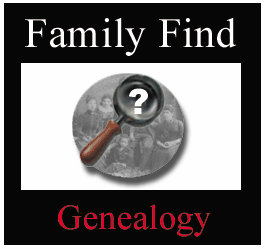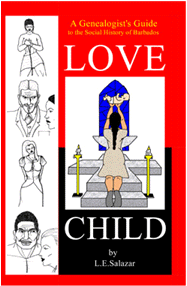|
Family Find, Brighton Beach, St. Michael, BARBADOS |
||
|
Are You Missing Someone from your Barbados Family Tree?
Family Find has helped people all over the world with one common problem - a dead-end in their search to trace their family tree in Barbados. By a combination of record searches, interviews, and other techniques, Family Find can delve further back into your tree. Click here for inquiries and rates.
The History of Barbados - where did everyone come from?Barbados, like its sister islands of the Caribbean is built upon an extinct mountain chain. Over many millions of years the surface lived on today was created by the life efforts of unimaginable numbers of a special sea snail, whose shell, left in death, is compacted and cemented together with those of its neighbors producing coral. Barbados was discovered by Europeans through the travels of the Portuguese who gave it the name 'Barbados' meaning "bearded ones". This name allegedly arose from a local tree that sprouts a thick cascading canopy of vines which resembles the human beard, at maturity. The local name for this tree to this day is the 'bearded fig tree'. Some authorities, however, contend that the name Barbados may also have arisen from bearded giants who once dwelt here since the bearded fig trees are inland plants. Stories of ancient giants prevail in the early Americas and the Olmec heads in Mexico are a testimony to their existence. Though the Portuguese discovered Barbados, it was the English who claimed the island in 1625 and settlement began in 1627 It was claimed that the island was uninhabited. Arawaks who originated from the mainland of South America however claimed that they had once lived on Barbados. They used a boat unique to them called a 'piragua' to reach here. (This boat essentially was a log with seating space carved out of it). Native culture on the island quickly disappeared under pressure of the new European culture and economic forces. At some point in the history of the island, sugar production and export to Europe became a tremendously profitable venture worldwide and it was during this period that Barbados suddenly rose to prominence. Its small land-mass, which is essentially flat, and the year round sunny weather made it an ideal estate for the sugar plantation era. However, sugar production proved to be manpower intensive and both the Europeans and Native Americans fared poorly at work in the hot climate. To solve this labour problem, the estate owners of the island imported Africans, who being accustomed to an equatorial climate over many generations, were unequaled in productivity. Many decades later the evils of the slave trade and forced labour in the Caribbean were ended by efforts of Europeans in Europe with finer humanitarian feelings and absent vested interests in the profits of sugar production, (the discovery that sugar could be attained from the sugar beet in Europe further stymied arguments of the 'necessity' of slavery). Today inhabitants of the island seek reconciliation regarding their past led by successive stable governments. The island has been independent since 1966. The animation to the right speaks to the island's importance to genealogical and historical research and its past strategic naval importance, but in actual fact this island is twenty-one miles long and fourteen miles wide located at latitude 13 degrees in the eastern Caribbean. Click www.substancebooks.com to see works from new authors around the world. Click www.candoo.com to see a collection of Caribbean surnames and documents. Click www.oocities.org/alhnmelungeon to see documentation on multiracial groups in the Appalachians. Click www.multiracial.com to see Articles and a Newsletter on multiracialism. |
|
Family Find Books Family Find is more than a genealogical service. It is also a small press dedicated to the restoration of family history, whether personal or national. Family Find holds the view that so long as there is a fragment of Truth remaining, it can be unwoven from the broad tapestry of the past. To this end, it will present for public scrutiny a fresh view of Native American and African history. Now Family Find is about to explore the following myths: Myth 1. "Slavery stole our names forever!" True or false? Answer 1. Mother Africa’s Baby Names and Our Native Namesis a special compilation of African and Native American names borne by slaves brought to the Caribbean from Africa and the Americas during the seventeenth and eighteenth centuries. These books will be of equal interest to parents-to-be, historians and others with an interest in our rich past. Available early 2006.Myth 2. "There was a clear separation of the races during the days of slavery." True or false? Answer 2. Love Child: Immediately available! Click here to read what others are saying about this book. -- A genealogist's guide to the social history of Barbados. Thousands of first generation Barbadians became pioneers in the U.S.A. For all who need to understand their Barbadian roots, Love Child by L.E. Salazar, B.A. (Hons.) is the answer. Take yourself on a journey through the pioneer years as described by eyewitnesses and draw your own conclusions from information compiled from slave lists, wills, plantation inventories and other rare public records, bringing to life the European, Native American and African experience in Barbados. Subjects such as where did the Amerindian go, particularly the exiled Native Americans, are covered in the light of the following statement. "We must bear in mind that our people are neither European nor North American; they are a mixture of Africa and America rather than an emanation of Europe ... While we have all been born of the same mother, our fathers, different in origin and in blood, are foreigners, and all differ visibly as to the colour of their skin, a dissimilarity which places upon us an obligation of the greatest importance." - Simon Bolivar
Myth 3. "The American Indian has no history." True or false? Answer 3. Lost Kingdom of Caura. Does Native American history begin in Siberia? Click here if you would like to be notified on publication of this book. Myth 4. "Our folk tales can't match the Greeks." True or false? Answer 4. Drum Song. Myths of our native lands set to verse. Beautifully illustrated book for persons of all ages. A great gift for kids - impart the joy of reading. Click here if you would like to be notified on publication of this book.
Click here to see Love Child's index. Click here to see Pictures of Old Barbados.
|




